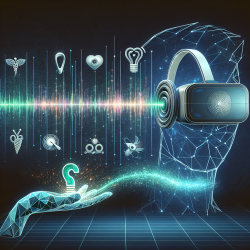In an era where technology is advancing at a breakneck pace, virtual reality (VR) is emerging as a powerful tool in the medical field, particularly for treating hearing disorders. The recent Systematic Review and Meta-Analysis of the Application of Virtual Reality in Hearing Disorders sheds light on the potential benefits of VR in managing hearing loss, tinnitus, and vestibular dysfunction.
This comprehensive review analyzed 23 studies published between 1968 and 2022, focusing on the effectiveness of VR-based interventions. Although only a few studies addressed hearing loss and tinnitus, the findings on vestibular dysfunction were particularly promising.
Key Findings
- VR-based rehabilitation significantly benefits individuals with vestibular disease, particularly in subjective measures like the Dizziness Handicap Index (DHI).
- High heterogeneity was identified across studies, indicating variability in outcomes.
- More clinical trials are needed to confirm the efficacy of VR in treating hearing loss and tinnitus.
Implications for Practitioners
For practitioners, these findings highlight the potential of VR as a therapeutic tool. Here are some actionable steps:
- Incorporate VR in Vestibular Rehabilitation: Utilize VR-based exercises to improve patients' subjective well-being, particularly those struggling with dizziness.
- Stay Updated: Keep abreast of new research and technological advancements in VR applications for hearing disorders.
- Collaborate: Work with tech developers to create customized VR programs tailored to individual patient needs.
Encouraging Further Research
The review also underscores the need for more research in this area. Practitioners can contribute by:
- Conducting Clinical Trials: Engage in or support clinical trials to gather more data on the effectiveness of VR in treating hearing disorders.
- Sharing Findings: Publish case studies and research findings to add to the growing body of evidence.
- Networking: Join professional networks and attend conferences to exchange knowledge and collaborate on research projects.
In conclusion, VR holds immense potential for treating hearing disorders. By staying informed and actively participating in research, practitioners can harness this technology to improve patient outcomes.
To read the original research paper, please follow this link: Systematic Review and Meta-Analysis of the Application of Virtual Reality in Hearing Disorders.










